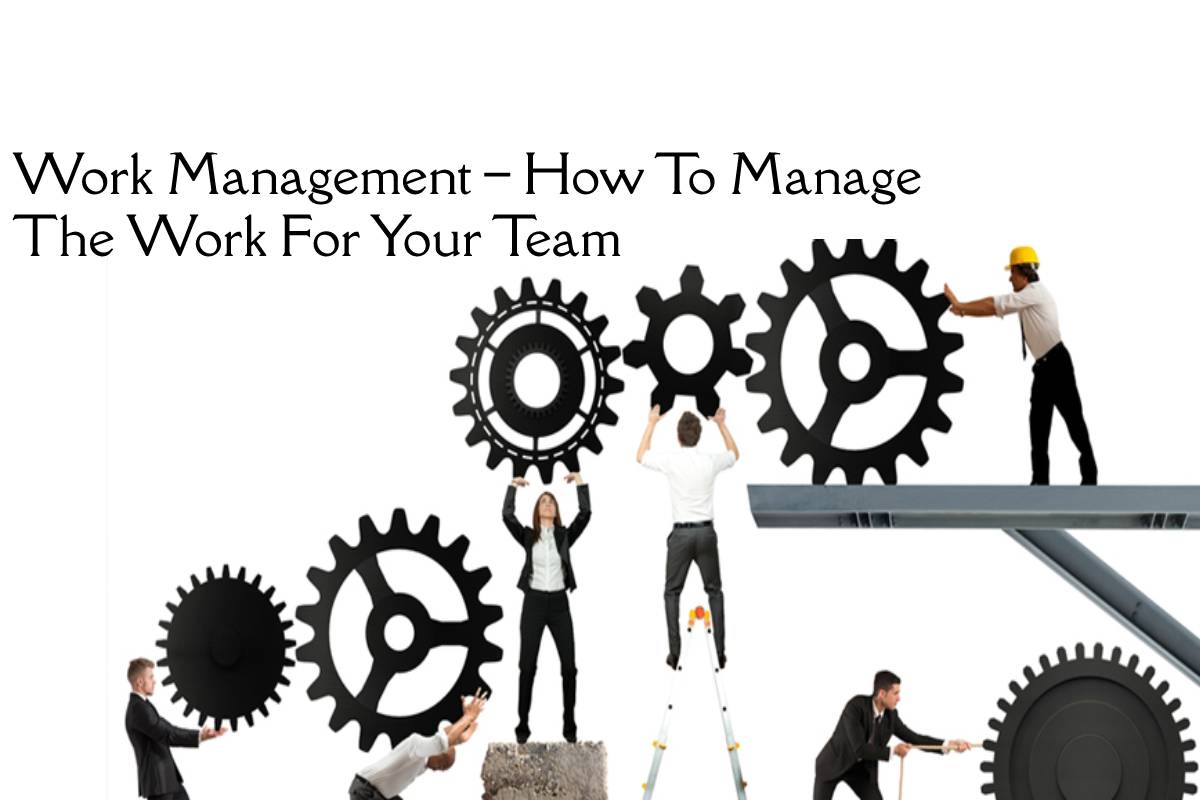Work management – Project management spends a lot of time doing the work that needs to be done before a project can be executed. It is important to study the feasibility of the project, plan its success, plan tasks, organize resources and build a budget.
Then comes the execution phase, and often much of a project manager’s attention is focused on monitoring, tracking, and reporting on progress and performance. Again all important aspects of project management. But don’t forget your team. They are the ones who will bring the concept up to date with the help of good guidance and appropriate work management software.
Getting the most out of your team and making sure they have the necessary resources to adjust their capacity at some point in the project is key to maximizing productivity. A work management method is required to create this optimal workflow structure.
Table of Contents
What is Work Management?
Work management is the interface between business and team processes to structure the workflow so that teams work more efficiently. This allows you to manage your team and the way they work for greater efficiency.
This can be applied to the project scope or the organization of the project workflow. In both cases, the goal is to streamline these processes to better plan tasks, meet stakeholder expectations, manage resources, and evaluate performance to further improve productivity.
The work management cycle begins with identifying that work, planning and planning the work, and then performing the work. But it doesn’t end there: follow-up is important. Use analysis to find out what works and what doesn’t.
Why is Work Management Important?
The obvious answer is that labor management is just as important as any method of management: it improves performance. Anything you can do to get your team to deliver excellence faster and with less financial investment will benefit the project.
Better performance is one of the motives for work management, which leads to more on-time and on-budget results. But labor management also streamlines processes in order not only to improve performance, but also to reduce redundancies that cost unnecessarily valuable time and money.
For this reason, work management is used by organizations around the world: it reduces waste. When you get rid of the activities that serve no purpose, better projects emerge. As simple as that.
However, there is more that an active work management plan produces, such as encouraging collaboration on tasks so that we can work together better. Communication is the passage in all project management processes. Hence, better communication is part of a work management program. It speaks for cooperation, but also for a clear direction so that things don’t have to be done more than once.
Best Practices For Effective Work Management
The secret to a successful work management system is not to be hard-coded. It has to be a living process that is constantly being reviewed and updated. With that in mind, keep these tips in mind as you manage your project work.
Transparency
Opaque systems are greenhouses that create resentment, undermine morale and suppress productivity. It is best to be open about not only your plan but the reasons for it. If you also seek feedback, you will have a happier, more creative, and more responsible team as you build mutual respect.
Communication
Clear communication goes hand in hand with transparency. If you don’t communicate well, you are going unnecessary. This information dessert will flourish with rumors and innuendos that will damage your work environment. Good communication builds collaborative and productive teams.
Feedback
To make sure your communication is good, you can’t just speak. you have to listen This is where feedback comes in. Being open to feedback creates trust and binds employees, which leads to higher work productivity. Make everyone feel like an integral part of the process and that their opinions are valued.
Collaboration
Together we can do more than alone, that’s a cliché because it comes from a seed of truth. Providing your teams with the tools to collaborate better is a driver of higher productivity. It also helps solidify teams and increase morale, which in turn leads to higher productivity. It’s a win-win situation.
Trust
You can give your team a plan and the tools to do better, but eventually you have to let them do their job. This takes a lot of hope on your part as a lot depends on the results. However, if you want your team to trust you, you have to trust them. They were hired for their skills and experience. Let them work.
Avoid Burnout
We brought home the concept of productivity improvement. Hence, it is important to understand that humans are not machines. Obviously? Yes, but easy to forget when you hit your goals and then move your team forward. Doing this without looking at work-home balance is a surefire recipe for burnout. Burn out your team and who will do the work? Lead from above and set a good example for them to follow.
Things To Avoid While Managing Your Work
Let’s not stop burnout completely. Because it’s really not a best practice, it’s a mistake in managing the work. There are other missteps that you need to be aware of when managing work. Let’s quickly go over a few.
One important thing is that the manager knows his team. This is a process like anything else and it takes time, but it can be sped up by icebreakers or social events outside of work. The better you know your team and the better they know you, the more insight you have into how their work is being managed.
When developing a system for your work management, communicate it clearly. You need to be direct and make sure everyone has their roles and responsibilities defined. Don’t be too rigid or too flexible, find the right balance. But most importantly, everyone knows what to do. Confusion leads to lost work.
Another problem is not dealing with problems as they arise in the project. This can be project-related or personnel-related. In either case, ignoring the problem will not fix it. On the contrary, it will fester and grow, often to the point where it interferes with work. Deal with these things quickly or suffer the consequences.



